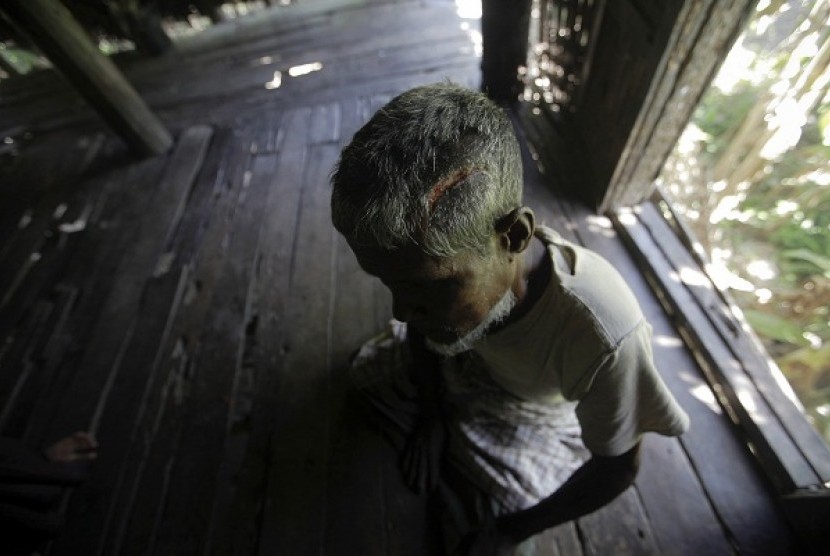REPUBLIKA.CO.ID, PAIK THAY - On a hot Sunday night in a remote Myanmar village, Tun Naing punched his wife and unleashed hell. She wanted rice for their three children. He said they couldn't afford it. Apartheid-like restrictions had prevented Muslims like Tun Naing from working for Buddhists here in Rakhine State along Myanmar's western border, costing the 38-year-old metalworker his job.
The couple screamed at each other. Tun Naing threw another punch. Neighbors joined in the row. The commotion stirred up ethnic Rakhine Buddhists in the next village, who began shouting anti-Muslim slurs. Relations between the two communities were already so tense that six soldiers were stationed nearby. Tun Naing's village was soon besieged by hundreds of Rakhines. And Myanmar was plunged into a week of sectarian violence that by official count claimed 89 lives, its worst in decades.
The unrest exposes the dark side of Myanmar's historic opening: an unleashing of ethnic hatred that was suppressed during 49 years of military rule. It is a crucial test for an 18-month-old reformist government in one of Asia's most ethnically diverse countries. Jailed dissidents have been released, a free election held and censorship lifted in a democratic transition so seamless that U.S. President Barack Obama is scheduled to make a congratulatory visit on November 19.
State media have largely absolved authorities of any role in the October unrest, depicting it mostly as spontaneous eruptions of violence that often ended with Muslims burning their own homes.
But a Reuters investigation paints a more troubling picture: The wave of attacks was organized, central-government military sources told Reuters. They were led by Rakhine nationalists tied to a powerful political party in the state, incited by Buddhist monks, and, some witnesses said, abetted at times by local security forces.
A leader in the regional party, the Rakhine Nationalities Development Party, denied it had a role in organizing the assaults but conceded the possible involvement of grass-roots supporters. "When the mob rises with very hot ethnic nationalism, it is very difficult to stop them," Oo Hla Saw told Reuters in an interview.
Two townships - Pauktaw and Kyaukphyu - saw the near-total expulsion of long-established Muslim populations, in what could amount to ethnic cleansing. One village saw a massacre of dozens of Muslims, among them 21 women.
Interviews with government officials, military and police, political leaders and dozens of Buddhists and Muslims across a vast conflict zone suggest Myanmar is entering a more violent phase of persecution of its 800,000 mostly stateless Rohingya, a Muslim minority in an overwhelmingly Buddhist country.



